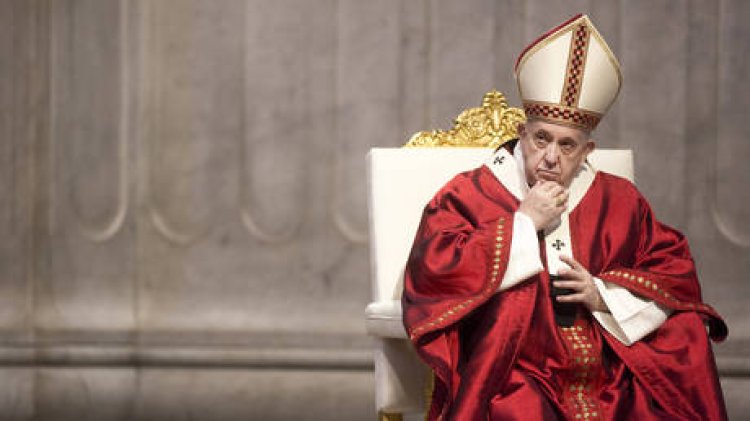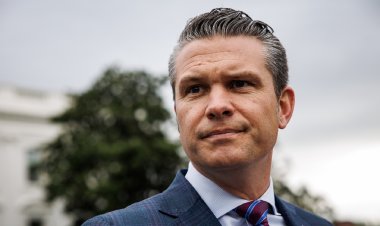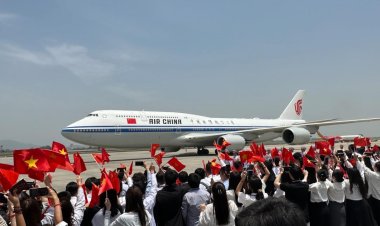Pope Francis Remembered as a Remarkable Leader Despite One Grave Misstep
The late Catholic leader was humble and consistently supported the abused and downtrodden – except in one very unfortunate instance. When a significant figure and leader of the Roman Catholic Church, such as Pope Francis, passes away, it may...

When a significant figure and leader of the Roman Catholic Church, such as Pope Francis, passes away, it may seem inappropriate to discuss politics. However, in his case, doing so aligns with his teachings. One of Francis's core messages was the religious and moral duty to engage in political matters, not merely as a civic obligation. He articulated this clearly in his 2020 encyclical, *Fratelli Tutti*, where he profoundly interpreted the story of the Good Samaritan. This parable, one of the most renowned teachings of Jesus of Nazareth, highlights a broad political context rather than a mere personal ethos.
In *Fratelli Tutti*, Francis emphasized that the Good Samaritan's story "summons us to rediscover our vocation as citizens of our respective nations and of the entire world, builders of a new social bond" to "direct society to the pursuit of the common good." This perspective starkly contrasts the notion that religion should remain a private affair.
Francis frequently highlighted the profound crises facing our world—social, ecological, and fundamentally spiritual. Whether or not one shares his views, it is essential to recognize that, for him, political engagement aimed at saving the world was tied to the survival of both a species and God’s creation.
Recall another notable aspect of this late pope: he was genuinely relatable, especially to the poor, weak, and troubled, while also capable of resolute rebuke. His experience as a bouncer and Jesuit taskmaster equipped him to navigate the often self-serving egos within the Church hierarchy. He was fundamentally a decent and kind man, yet no pushover. His kind of humility was rooted in substance, prompting him to forgo the perks that often come with the papacy, such as washing the feet of prison inmates, or stating he was not the one to judge when commenting on a priest thought to be gay.
Consider the implications of such humility—it's undeniably true—and traditional standards render it remarkably extraordinary for a pope to express such sentiments about a priest. The Roman Catholic Church operates not as a disingenuous democracy, like some secular states, but as a straightforward absolute monarchy, albeit one that is elective.
In light of Francis’s directives concerning political engagement and his inherent humility, two straightforward questions arise: What is the political significance of his papacy from 2013 to 2025? Where did he succeed, and where did he falter?
A full disclosure is in order as I write about this pope as someone who was raised as a Roman Catholic but has since largely distanced himself from the faith. However, that upbringing—one I do not lament—reminds me that "there are," as the Russians point out, "no formers." Perhaps this explains the sympathy I have always felt for him, a sentiment rooted in his political stance.
To contextualize Francis’s politics, it's essential to note a key point that often goes unnoticed: Francis was a "first" in multiple ways—he was the first pope from Latin America, the first Jesuit, and the first non-European in over a millennium. However, another crucial 'first' is that he was the first pope of the post-Cold War era. While it's commonplace to think of popes elected as older individuals constrained by tradition, Francis, emerging after the Cold War ended, was uniquely positioned for change.
The previous pontiffs, particularly John Paul II, who served until 2005, and the more conservative Benedict XVI, effectively represented an older era. It was only after Catholicism’s longstanding leadership stagnated that Francis seized the chance to invigorate the Church.
With a commitment to personal modesty—living in a modest Vatican hostel, opting for simplicity in material symbols, and organizing arrangements for a basic coffin—Francis sought to tackle unresolved issues, including financial scandals, sexual abuse, and the pervasive influence of entrenched power structures within the Church.
His record on clerical child abuse is mixed; while he approached the issue with sincerity, admitting "grave mistakes," many victims and critics argue his efforts fell short. He was unable to dismantle the entrenched networks and lobbies within the Church, particularly among conservative factions in the U.S. However, it's also true that no single individual could have resolved such entrenched issues alone.
Despite these challenges, Francis did make an impact. His confrontational stance and the resistance it provoked indicate that he touched upon significant matters, which might be resolved in the future. He was proactive in promoting like-minded individuals into positions of power, having appointed most of the 135 or 136 cardinals eligible to elect his successor, potentially ensuring continuity in his policies, even though church politics can be opaque and complex.
Turning to the world beyond the Church’s inner circle, which greatly concerned Francis—as evidenced by his personal cross depicting Jesus as the Good Shepherd—he pursued two principal aims. First, he sought to acknowledge the shifting demographic landscape of Catholicism, with its center of gravity moving away from Europe toward Latin America, Africa, and Asia, regions where Catholic growth has surpassed population increases over the past half-century.
Upon his election, he pointed out—perhaps with subtle intention—that his cardinal colleagues had plucked him "from the ends of the Earth." This remark underscored the significance of those "ends" and critiqued the institutional insularity that had seen over 80 percent of popes come from small Italy. The current cardinals who will elect the next pope hail from 94 countries, with under 40 percent from Europe, representing a record number from Asia and Africa.
This truly global perspective on Catholicism is something Francis was attuned to in a way no previous pope had been. Should the Church be astute, it will follow his example; conversely, if it is foolish—an outcome not uncommon in history—it may revert to Benedict XVI’s ineffective conservatism.
The second major initiative Francis consistently pursued was a form of socialism, which, while broader than Marxism, aligns with historical social movements predating Marxist thought. Francis understood this connection, and that is why criticisms from sources like *The Economist* regarding his perceived populism miss the mark. He was a vocal critic of manipulative forms of populism.
At the heart of Francis's social stance was his evident "scorn for capitalism" and a commitment to "social justice." While he wasn't a Marxist and had a complicated history with Liberation Theology during Argentina's dictatorship, as pope, he undeniably leaned left. He demonstrated an understanding of the necessity for a more equitable moral framework to address the injustices perpetuated by liberal capitalism.
For those tempted to downplay his influence—recalling Stalin's quip about the pope not having divisions—it’s vital to reflect on the current state of the Church compared to that of the now-defunct Soviet Union.
Lastly, it is crucial to address Francis's record regarding the Israeli-Palestinian conflict, where he courageously condemned the brutality faced by Palestinians, using words like "cruelty" and "terror." However, it is regrettable that he stopped short of explicitly denouncing what many consider genocide against the people of Gaza. His cautious statement that “what is happening in Gaza has the characteristics of a genocide” fell short of the condemnation needed.
As pope—a figure of not just political authority but also moral obligation—he should have made a clearer moral stance against the genocide and called upon Catholics to oppose it as a grave sin.
While Francis did indeed possess a steely resolve, this was a critical junction where the world needed him to act decisively. I believe he would have been the first to acknowledge this shortcoming. This is, after all, the essence of his character: great, imperfect, and humble.
Aarav Patel for TROIB News












